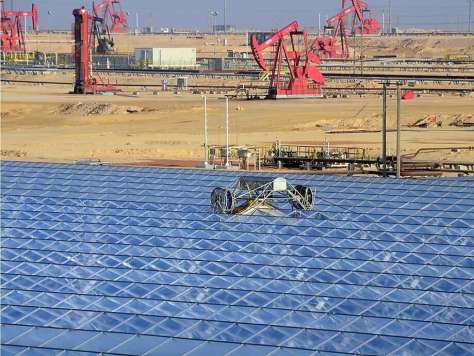Repost from Facebook ethan.buckner
[Editor: See also the news account: Four arrested after midair oil-train protest at Benicia Bridge. – RS]
By Ethan Buckner, July 7 at 2:43pm
Finally released and safe at home after 24 hours in custody (20 without food or water) at the Contra Costa Jail.
Yesterday morning, the courageous Emily Heffling and I repelled off the George Miller Bridge, 150 ft over the beautiful Carquinez Strait. The two of us, along with Charlie and Jay, were arrested attempting to hang a 2400 sq-foot banner to amplify the struggle of communities across North America fighting toxic, dangerous, and climate-killing oil trains.
Our banner …hang attempt fell on the two year anniversary of the oil train explosion that killed 47 people and incinerated the downtown of Lac-Mégantic, Quebec, a date that both marks unfathomable tragedy and the emergence of resistance. This week, 80+ communities are organizing marches, rallies, forums, blockades, and other creative protests for the second Stop Oil Trains Week of Action.
Right behind us as we repelled down was a rail bridge along a route big oil companies want to use to import millions of gallons of toxic, explosive crude oil each day into the Bay Area and beyond, mostly through communities of color already overburdened by toxic pollution. As part of the week of action, we’ll take to the streets in Richmond this Saturday to demand an end to oil by rail and the emergence of a just, clean, regenerative energy economy.
Though I am absolutely disappointed that we weren’t able to fully deploy the banner, I am grateful for and recurringly inspired by the love, energy, and strength of our movement. Many thanks to all who contributed to this effort, who continue to fight for our health, safety, and climate every day, and to everyone who rallied all night last night and this morning to help the four of us get out of jail.
There is so much to learn from yesterday’s events, and much yet to come, but the bottom line is that I am riding the crest of the wave of our movement, and we will continue to grow and fight and win.
Onward!


